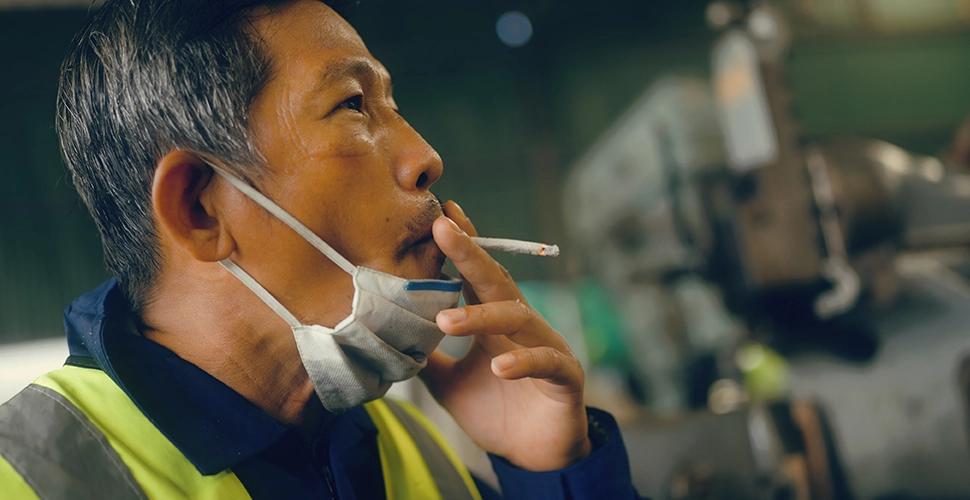Different organizations, states, and local laws have different answers to the question: “what are the smoking rules at work?”
To stay compliant as well as reduce tobacco use and secondhand smoke exposure among your employee population, here is what you need to know about smoke-free policies:
Smoking rules at work based on organization type
- Federal employers: Currently, there are no federal laws that ban smoking in private workplaces, although Executive Order 13058 does ban smoking in most federal facilities and spaces.
Employees who work in federal facilities may not use tobacco products in any interior space owned, rented, or leased by the federal government or in any outdoor areas in front of air intake ducts.
However, federal employees may be able to smoke in certain designated areas if those areas are well-ventilated, but employees should check with their employer before lighting up.
- Private sector employers: A private sector employer has the right to ban tobacco use in the workplace, even if an employee resides in a state or locality that does not ban smoking in the workplace.
Depending on the state in which an employee resides, an employer may be prohibited from discriminating against an employee who uses tobacco products outside of work. But the employer is free to restrict tobacco use at the worksite regardless of state laws.
Smoking rules at work by state
According to the American Nonsmokers’ Rights Foundation, 17 states do not have 100% smokefree provisions for non-hospitality workplaces, meaning that many times it is up to the employer to decide whether to impose smoking restrictions at the worksite. These states are:
- Alabama
- Alaska
- Arkansas
- Georgia
- Kentucky
- Idaho
- Mississippi
- Missouri
- New Hampshire
- Oklahoma
- North Carolina
- South Carolina
- Tennessee
- Texas
- Virginia
- West Virginia
- Wyoming
In 2024, 62.7% of U.S. residents live in a state or community with a comprehensive smoke-free law.
Local laws that govern smoking rules at work
Even in states with no laws banning tobacco use in the workplace, there may be local government rules that impose such bans.
For example, Mississippi has no state law prohibiting tobacco use at work, but 31.8% of residents are covered by 100% smoke-free laws for restaurants, bars and non-hospitality workplaces enacted by cities and counties.
As of Oct. 1, 2024, 1,443 municipalities across the country have 100% smokefree non-hospitality workplace laws.
Impact of smoke-free workplaces
Over 100 studies have found that smoke-free laws are associated with significant reductions in morbidity and mortality related to cardiovascular disease, respiratory system disease, and perinatal outcomes.
Additionally, the U.S. Surgeon General has concluded that smoke-free workplace policies are the only effective means to eliminate secondhand smoke exposure in the workplace. Separating individuals who smoke from nonsmokers, cleaning the air, and ventilating buildings do not effectively eliminate exposure.
If you are an employer that wants more information about how to eliminate tobacco use at the worksite, check your local and state laws.
For more information about tobacco use rules for your specific organization, contact the Center for Health and Wellness Law, LLC.


